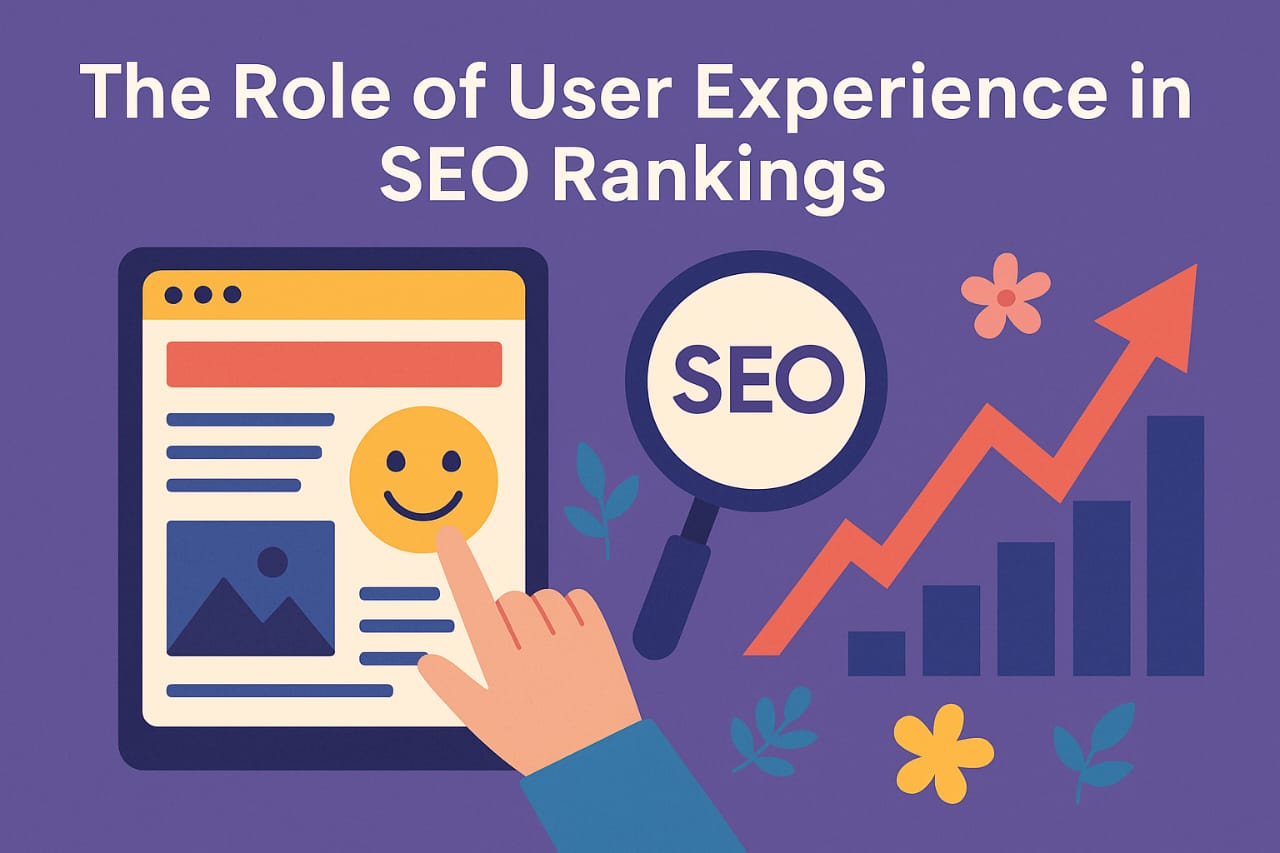
Whenever everybody speaks of SEO (Search Engine Optimization)
Everybody is usually talking about keywords, backlinks, and meta tags. Yet, one of the most important but easily overlooked areas is User Experience (UX). Google would prefer to show users the best, most helpful websites—and that includes how easy it is to navigate a site.
Let’s break the effect of UX on your SEO performance and optimize it.
1. What is User Experience (UX)?
User experience is what the visitor feels when they are on your website. It includes:
- How easy it is to navigate around
- How fast the pages load
- How it looks on mobiles
- Whether the information is helpful and readable
- How smooth and enjoyable the visit in general
Good UX is when individuals can quickly find what they’re searching for and enjoy themselves on your site.
2. Google Cares About UX
Google’s number one goal is to show users useful, high-quality sites. If your site is slow or confusing, users will leave in a flash. This tells Google that your site might not be useful.
The following are some UX signals that affect SEO:
- Bounce rate – If users leave your site straight away, it’s a bad sign.
- Time on site – If individuals stick around and read your content, it’s a good sign.
- Mobile usability – Google likes mobile sites.
- Core Web Vitals – These are technical aspects like load speed, interactivity, and layout stability.
3. How to Improve UX for Better SEO
The following are some easy ways to enhance your site’s user experience and benefit your SEO rankings:
- Improve site speed – Compress images, host faster, and delete unused plugins.
- Make it mobile-friendly – Utilize a responsive design that functions well on all screen sizes.
- Use clear navigation – Make it simple for users to locate what they’re searching for.
- Organize content – Use headings, short paragraphs, bullet points, and images to divide text.
- Add internal links – Help users find more on your site by linking to other appropriate pages.
4. Prioritize Quality Content
UX isn’t just about design—it’s also about content. Make sure your site:
- Answers questions from your visitors
- Provides actual value
- Is written in clear, simple language
- Is updated regularly
When your content is useful to your users, they stick around longer, interact more, and return more often.
Final Thoughts
User experience plays a big role in SEO success. A fast, easy-to-use, and helpful site makes users happy—and Google rewards that with better rankings.
So don’t search engines optimize. Optimize for users. If your site benefits users, it will benefit SEO too.
